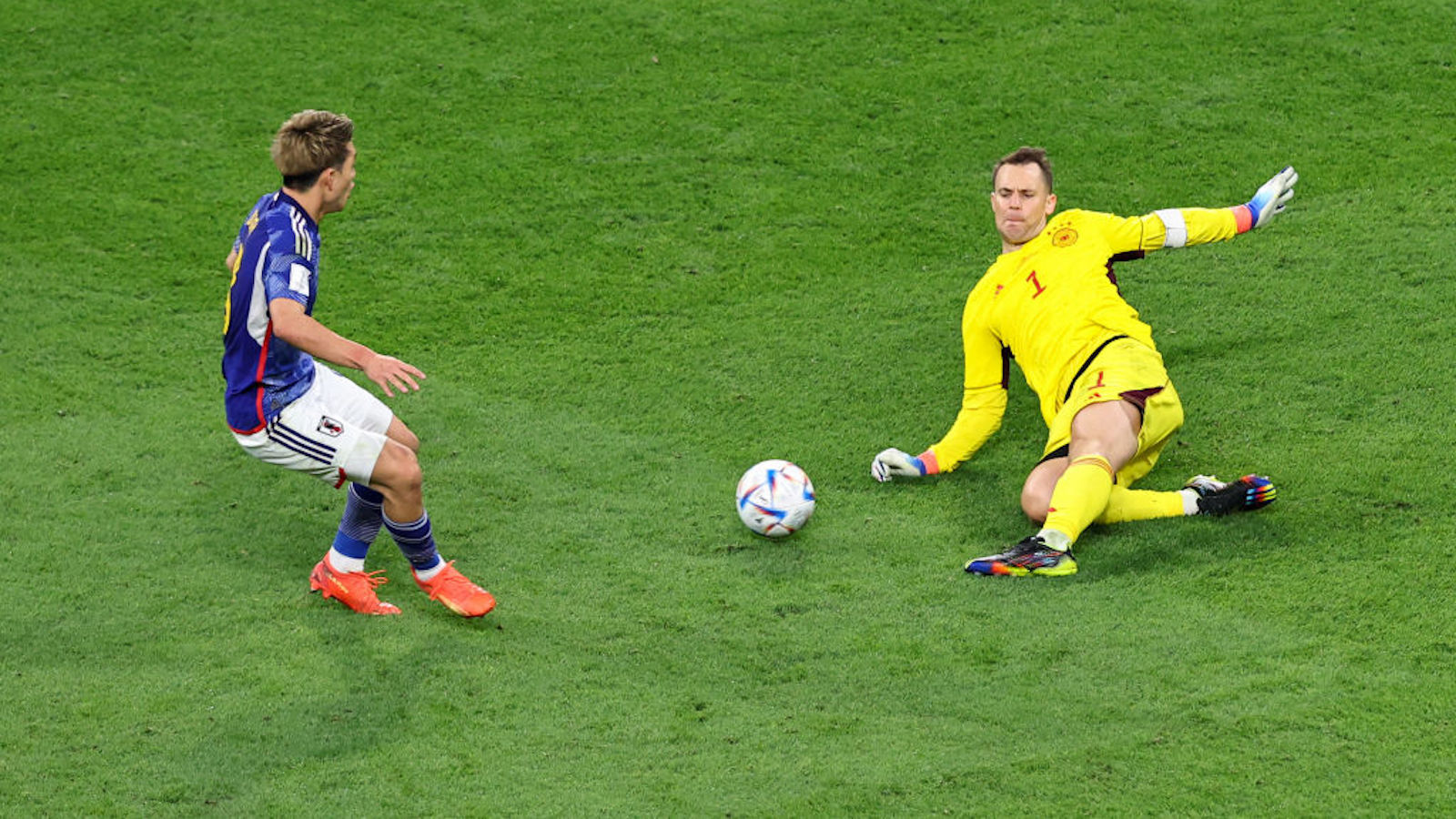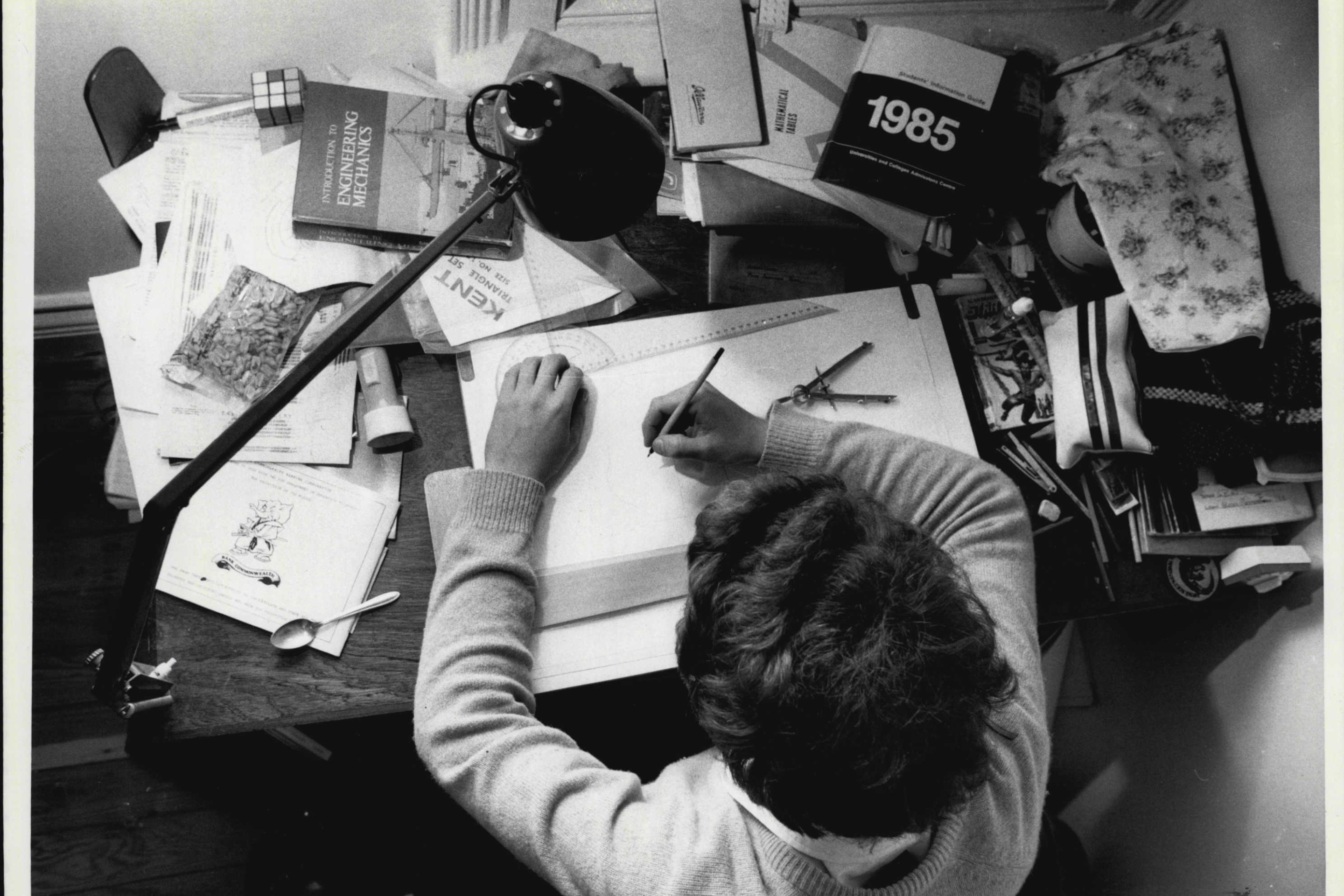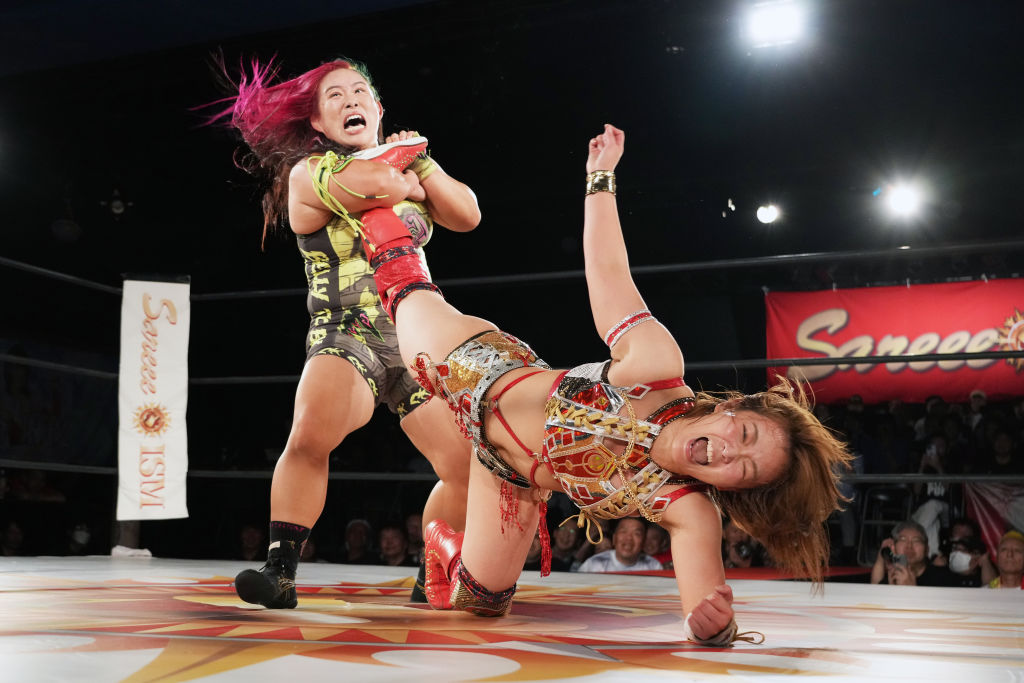A group-stage game between Japan and Germany is the kind of World Cup match that just begs to be circled on the schedule. Who wouldn't be excited to see one of the best teams in the world go up against a young, scrappy underdog capable of making things interesting? The problem with getting excited about these sorts of games, however, is that they rarely live up to the billing, either because the underdog duffs it and gets blown out 4–0, or because the favorite never kicks into gear and sputters its way to a 0–0 draw or 1–0 loss. Lucky for us, Japan and Germany played their respective roles to perfection on Wednesday, and produced the best game of the tournament so far.
We'll start with Germany, which started the game seemingly determined to silence any lingering doubts about their place in the world soccer hierarchy. Japan was sitting deep, hoping to absorb Germany's attacks and spring the occasional counter to try to steal a goal. That's a sound strategy against a superior opponent, as even the most individually talented squads can struggle to unlock a deep-lying defense. The problem for Japan was that Germany started the game in full flow, easily connecting passes and creating patterns of attack that led to a steady stream of goal-scoring chances. It was a beautiful switch from midfielder Joshua Kimmich that found left back David Raum all alone in Japan's box in the 32nd minute, leading to a penalty and a 1–0 lead for Germany.
Just a little bit of a foul in the box 😅 pic.twitter.com/3FmznGFUdg
— FOX Soccer (@FOXSoccer) November 23, 2022
At this point, it felt like a big win was in the cards for Germany. Not only did they have all of the possession, they were also cutting through Japan's lines and creating shots at a rate (Germany took 29 shots in this game!) that seemed to guarantee that two or three more goals were on the way.
This is where Japan stepped up and did its part. In a matchup like this, the lesser team's chances usually depend on how much they are able to frustrate their bigger and badder opponents. You sit behind the ball and surrender all of the possession in the hopes that the other guys will be unable to figure out how to create chances, grow more annoyed at their inability to create those chances as the game goes on, and eventually reveal a lack of resolve that can be exploited. None of this happened to Germany, and thus it would have been totally understandable for Japan to crumble. Fine. The plan didn't work. These guys are just better.
A funny thing happened as the game went on, though: Japan's confidence and bravery just kept growing. Managers love to talk about how important mentality is to finding success on a soccer field, and you'll find no better evidence in support of that opinion than the performance Japan put on during the last 30 minutes of this game. Germany never really slowed down or faltered, but Japan didn't need them to. They just kept fighting and pushing and creating chances of their own, and eventually got an equalizer in the 75th minute:
A closer look at Japan's equalizer by Ritsu Doan 🔥🇯🇵 pic.twitter.com/zifs4fAWN6
— FOX Soccer (@FOXSoccer) November 23, 2022
And they didn't stop there. The underdog playbook would have called for Japan to drop back into a defensive shape and focus all of their efforts on protecting the draw, but the Samurai Blue had more fight left in them:
JAPAN TAKES THE LEAD
— FOX Soccer (@FOXSoccer) November 23, 2022
JAPAN TAKES THE LEAD
JAPAN TAKES THE LEAD pic.twitter.com/V5Jzmnc8cJ
This is what the World Cup is all about: two teams pushing themselves into heightened states in an effort to meet the demands they made of each other. When Japan sat back and opted to try and absorb all of Germany's pressure, it was asking for proof that Germany could live up to its talent. When Germany submitted an authoritative answer, it in turn asked Japan if it had the horses to make a real game of it. The end result was elation for Japan and bitter disappointment for Germany, but it was the effort and determination exhibited by both sides that made this game more than just an upset. A game well played can, on occasion, transcend its final result.





